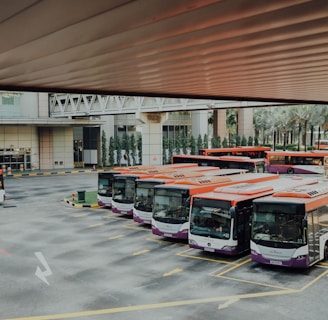Challenges Faced by Transport Operators in Africa
"Explore the critical challenges facing Africa's transport operators, from outdated systems to environmental concerns, and the collaborative solutions needed for modernization and efficiency."


Transport operators in Africa face numerous challenges that hinder their ability to provide efficient and reliable services. These challenges include the use of outdated systems, reliance on cash payments, poor travel experience, safety concerns, unreliable services, environmental issues, aging fleets, and limited technology expertise and resources.
Outdated Systems and Cash Payments
One of the major issues faced by transport operators in Africa is the use of outdated systems. Many operators still rely on manual processes and paper-based ticketing systems, which are time-consuming and prone to errors. Additionally, a significant number of passengers still prefer to make cash payments, further complicating the ticketing and payment processes.
Poor Travel Experience
Transport operators in Africa often struggle to provide a satisfactory travel experience to their passengers. Aging fleets and lack of proper maintenance result in frequent breakdowns and delays. This not only inconveniences passengers but also affects the overall reliability of the services provided.
Safety, Reliability, and Environmental Concerns
The use of aging fleets and outdated systems poses safety concerns for both passengers and operators. Lack of proper maintenance and inadequate safety measures increase the risk of accidents and injuries. Moreover, the environmental impact of these outdated systems and aging fleets is significant, contributing to pollution and carbon emissions.
Limited Technology Expertise and Resources
Transport operators in Africa often face challenges in adopting and implementing new technologies due to limited expertise and resources. The lack of technical know-how and financial constraints make it difficult for operators to invest in modernizing their systems and fleets.
Addressing these challenges requires a multi-faceted approach involving government support, private sector investment, and collaboration between stakeholders. Governments should develop policies and regulations that promote the adoption of modern technologies and incentivize transport operators to upgrade their systems and fleets.
Private sector players can play a crucial role by investing in technology solutions and providing training and support to transport operators. This can help improve their operational efficiency, enhance the travel experience for passengers, and contribute to a more sustainable and environmentally friendly transport system.
Furthermore, collaboration between transport operators, technology providers, and other stakeholders can lead to the development of innovative solutions tailored to the specific needs of the African transport industry. This can include the introduction of mobile payment systems, real-time tracking and monitoring of fleets, and the use of renewable energy sources for powering vehicles.
In conclusion, transport operators in Africa face significant challenges related to outdated systems, cash payments, poor travel experience, safety concerns, environmental issues, aging fleets, and limited technology expertise and resources. Addressing these challenges requires a collaborative effort from governments, private sector players, and other stakeholders to modernize the transport industry and provide efficient, reliable, and sustainable services to the people of Africa.
